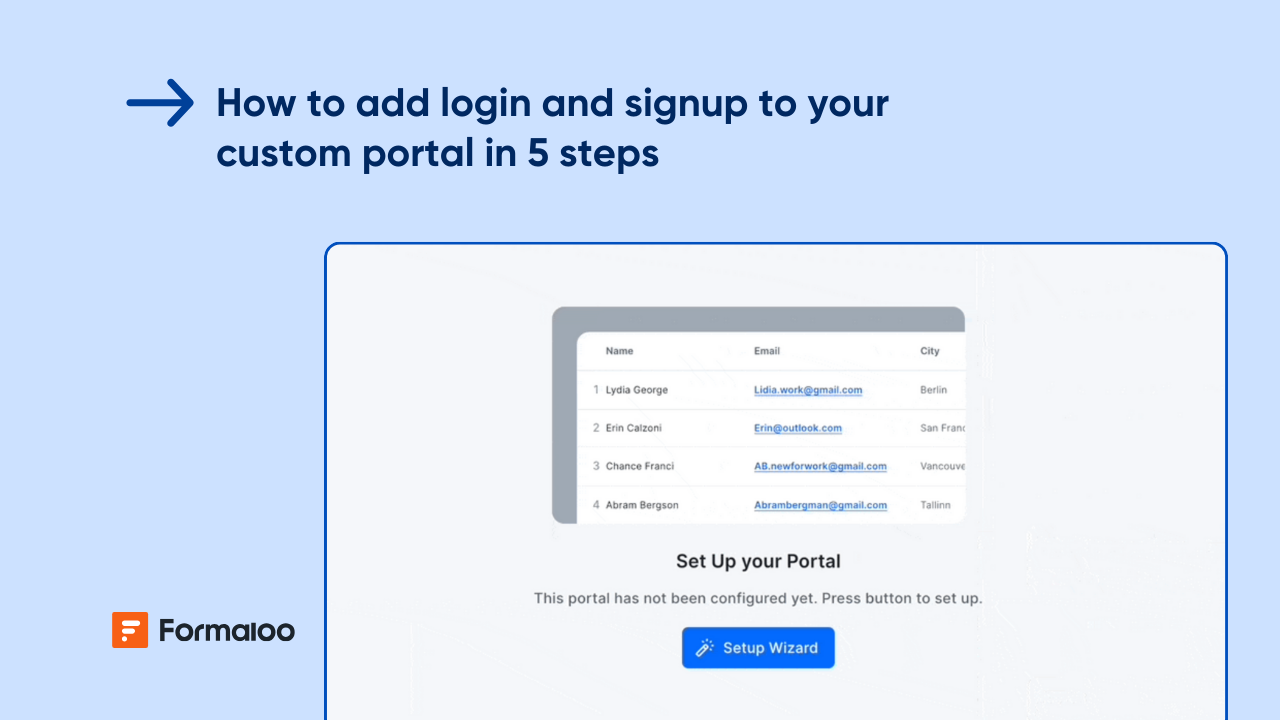How to create HIPAA-compliant forms and apps
HIPAA compliance often feels like a complex puzzle, and it’s perfectly understandable if you’re not coming from a legal background.

HIPAA compliance often feels like a complex puzzle, and it’s perfectly understandable if you’re not coming from a legal background.
If you’ve looked for information on HIPAA, you might have felt confused by the complicated language and explanations. You may be unsure about which parts of HIPAA apply to your healthcare business or services.
However, it’s a task that every medical institution must tackle to ensure that patient data remains private and secure.
So, who exactly does HIPAA apply to? This question can stir up a lot of confusion. In this article, we’ll take a closer look at it and clarify its reach.
What is HIPAA compliance?
HIPAA is the first U.S. national standard designed to safeguard sensitive patient health data. The Health Insurance Portability and Accountability Act, passed in 1996, aims to improve healthcare industry efficiency and consistency.
HIPAA sets rules for healthcare organizations to protect and handle sensitive health information (PHI) securely.
HIPAA ensures that no one can access or disclose your PHI without your knowledge or consent.
Who does HIPAA apply to?
According to the U.S. Department of Health & Human Services, HIPAA applies to what they call “covered entities.” These covered entities include:
- Healthcare providers: This category includes doctors, dentists, nurses, chiropractors, and other healthcare professionals. It also encloses hospitals, clinics, and nursing homes. They all handle your medical records and need to follow HIPAA rules.
- Health plans: Health insurance companies are a prime example here. Whether it’s private insurance, Medicare, Medicaid, or any other health plan, they fall under HIPAA’s jurisdiction. They deal with your insurance claims and personal health information.
- Healthcare clearinghouses: These organizations process and translate healthcare data to a standard format for providers and payers.
- Business associates: This regulation also extends its reach to those who provide services to covered entities and have access to PHI. This category includes a wide range of service providers, such as:
- Billing companies: These entities handle the financial side of healthcare, processing claims and payments.
- IT service providers: Companies that manage and maintain electronic health records systems and other healthcare technologies.
- Consultants: Professionals who provide advice or support related to healthcare, which may involve access to PHI.
- Pharmacies: Since they handle prescription information, pharmacies are considered covered entities under HIPAA.
- Medical laboratories: These organizations perform tests and handle sensitive health data.
- Medical equipment suppliers: Companies that provide durable medical equipment, like wheelchairs and oxygen supplies.
- Healthcare researchers: They must adhere to HIPAA if they work with PHI.
So, in simple terms, HIPAA applies not only to direct healthcare providers and insurance companies but also to a wide array of businesses and individuals who handle your health information.
When does a business associate agreement come into play?
The business associate agreement is needed before a healthcare provider or insurer shares your private health (PHI) info with another company that helps them with services.
This agreement, known as a BAA, outlines what that other company (the business associate) must do to keep your health info safe when they work for the healthcare provider or insurer.
What are the consequences of a HIPAA violation?
Violating HIPAA rules can lead to big problems. It might mean paying a lot of money in fines. Like, a hospital in California got fined $2.1 million for sharing a patient’s medical info without permission.
Sometimes, breaking HIPAA can even lead to going to court or jail, especially for serious breaches. Besides, if someone affected decides to sue, the company or person responsible might have to pay them money for the trouble caused.
Also, the ones who break the rules might lose their good reputation. Patients may not trust them anymore, affecting their business. To fix things, the ones who mess up may need to create a plan to ensure it doesn’t happen again. Sometimes, their deals with other companies might end because they didn’t follow the rules.
Overall, breaking HIPAA has serious consequences that can cost a lot of money, damage reputations, and even lead to legal trouble. So, it’s super important to stick to the rules to keep everyone’s health info safe and avoid these big problems.
HIPAA-compliant forms and tools
When it comes to HIPAA-compliant forms and tools, the process doesn’t have to be complicated. By choosing the right providers like Formaloo, you can simplify the handling of sensitive health information while ensuring full HIPAA compliance.
Formaloo offers a range of HIPAA-friendly solutions designed to facilitate various medical processes. From appointment scheduling to billing, Formaloo’s tools help you meet the unique needs of healthcare providers. This improves organization and efficiency and guarantees that patient data remains confidential and secure.
With Formaloo, medical professionals can focus on delivering top-quality care, knowing that their tools are fully aligned with HIPAA standards.
Avoid the fallout of a breach
As we’ve explored throughout this article, maintaining HIPAA compliance is not only essential but also manageable with the right tools and solutions.
Formaloo steps in as the answer to these needs, offering a comprehensive set of solutions tailored to the unique requirements of medical organizations. From secure data management to HIPAA-friendly forms and streamlined processes, Formaloo empowers healthcare providers to navigate the complex compliance process with ease.
Medical organizations can use Formaloo to protect patient privacy, ensure data security, and focus on providing excellent healthcare services.
So, with Formaloo at your side, the path to HIPAA compliance becomes not only achievable but also a cornerstone of trust and excellence in the medical field.
Book a demo to start your HIPAA compliance journey with Formaloo.
For more useful content, check our blog page and follow us on our YouTube channel.
.png)











